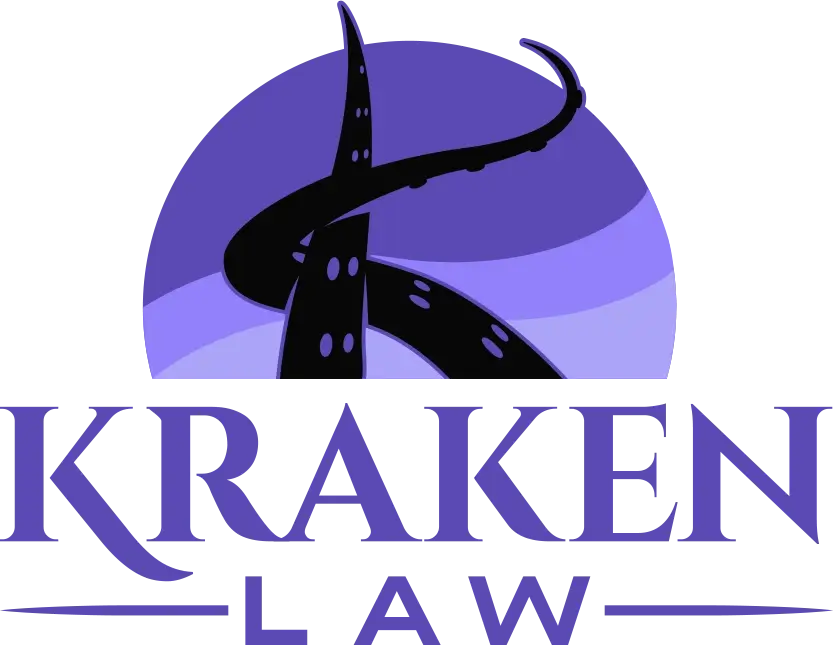
Divorce can be a difficult and emotional process. Whether you’re hoping for a more peaceful resolution through mediation or preparing for the complexities of litigation, understanding the differences between these approaches is essential. Kraken Law Group’s experienced divorce attorneys can help you decide which path is right for your situation, ensuring your rights are protected every step of the way. Let’s dive into what each option entails and which might be the best fit for your unique situation.
What Is Divorce Mediation?

Divorce mediation is an alternative dispute resolution process where a neutral third party, the mediator, helps both spouses negotiate the terms of their divorce. The goal is to reach an amicable agreement without going to court.
Benefits of Mediation:
- Less Confrontational: Mediation is often less stressful than litigation. It encourages cooperation, making it easier for both parties to maintain a civil relationship, which is particularly beneficial if children are involved.
- Cost-Effective: Mediation tends to be significantly cheaper than litigation, as it avoids prolonged court battles and extensive legal fees.
- Private and Confidential: Unlike litigation, which can become a public record, mediation is confidential.
- Control Over the Outcome: In mediation, both parties have more control over the final agreement rather than leaving it in the hands of a judge.
When to Choose Mediation:
Mediation works best when both parties are willing to compromise and communicate effectively. It’s an ideal option if you’re looking for a quicker, more harmonious divorce.
What Is Divorce Litigation?
Litigation, on the other hand, involves a court process where each spouse hires a lawyer to represent them. The case is argued before a judge, who ultimately makes the final decisions regarding issues such as asset division, child custody, and alimony.
Benefits of Litigation:
- Clear Legal Guidance: In complex divorces where there’s a significant disagreement or substantial assets, litigation ensures each party is fully represented and all legal nuances are addressed.
- Protection in High-Conflict Situations: If your divorce is highly contentious or if there are safety concerns (e.g., domestic violence), litigation provides a formal structure to address those issues.
- Binding Legal Decisions: Once the court rules, the decision is legally binding and enforceable.
When to Choose Litigation:
Litigation might be the right choice if there’s a high level of conflict, significant assets at stake, or issues such as child custody and support that cannot be amicably resolved.
Key Differences Between Mediation and Litigation

1. Control Over the Process
- Mediation: You and your spouse maintain control over the terms of the divorce.
- Litigation: The court makes the final decision if no agreement is reached.
2. Cost
- Mediation: Less expensive due to fewer attorney fees and a shorter process.
- Litigation: More costly, with longer court proceedings and lawyer involvement.
3. Privacy
- Mediation: Confidential and private.
- Litigation: Court cases are public records, so your divorce details could be made public.
4. Time
- Mediation: Typically faster, with fewer delays.
- Litigation: Can take months or even years depending on the complexity of the case.
Factors to Consider When Choosing Between Mediation and Litigation

1. Communication Level with Your Spouse:
If you and your spouse can communicate openly, mediation might work well. However, if emotions run high or there’s a breakdown in communication, litigation may be necessary.
2. Financial Situation:
Divorce litigation can drain financial resources, especially if the case drags on. Mediation is typically the more affordable route.
3. Complexity of the Divorce:
In cases with complex financial arrangements or child custody issues, litigation might provide a more structured approach to resolving disputes.
Advantages of Mediation Over Litigation
While litigation offers formal legal protection, mediation has several advantages:
- Flexibility: Mediation allows for creative solutions tailored to both spouses’ needs.
- Preservation of Relationships: Especially when children are involved, mediation helps preserve a working relationship between the parents.
- Efficiency: With mediation, many couples can finalize their divorce in a matter of weeks or months.
Advantages of Litigation Over Mediation
In some cases, litigation is unavoidable and beneficial:
- Legal Representation: Each party is fully represented, ensuring no stone is left unturned.
- Court Intervention: In cases where spouses cannot agree, a judge steps in to make legally binding decisions.
The Role of Lawyers in Mediation and Litigation
In mediation, lawyers can still play a role, advising their clients behind the scenes or reviewing agreements before they’re finalized. In litigation, however, lawyers take center stage, advocating for their client’s rights in court.
How to Prepare for Mediation
If you’ve decided mediation is the best path for you, preparation is key.
- Organize Financial Documents: Having all relevant financial records ready will help the process move smoothly.
- Know Your Goals: Have a clear idea of what you want regarding assets, custody, and support before mediation begins.
- Stay Open-Minded: Successful mediation requires compromise and flexibility.
How to Prepare for Litigation
For litigation, preparation involves:
- Hiring an Experienced Attorney: Your lawyer will be your advocate throughout the process, so find someone skilled in family law.
- Gathering Evidence: Be ready to provide documentation and evidence to support your claims, particularly in contested divorces.
- Being Ready for a Lengthy Process: Understand that litigation can take time, and you’ll need to be patient.
Which Option Is Best for You?

Choosing between mediation and litigation depends on your unique circumstances. If you want a quicker, more peaceful resolution and have a willingness to compromise, mediation is ideal. If there’s a lot at stake, or if there’s conflict and mistrust, litigation may be necessary to protect your interests.
Conclusion
Divorce is always challenging, but understanding the differences between mediation and litigation can help you make the best choice for your future. Whether you’re focused on minimizing costs, maintaining privacy, or needing legal intervention, exploring your options ensures you are ready to move forward. If you’re unsure which approach is right for your case, the experienced divorce attorneys at Kraken Law Group can provide the guidance you need to navigate this difficult process confidently.
FAQs
1. Can I switch from mediation to litigation if things don’t work out?
Yes, if mediation doesn’t result in an agreement, you can proceed with litigation. However, many people find success in mediation when both parties are committed to resolving issues amicably.
2. How long does mediation take compared to litigation?
Mediation usually takes weeks to months, depending on the complexity of the issues. Litigation can take much longer, sometimes years, especially if the divorce is highly contested.
3. Can I represent myself in litigation?
While it’s possible to represent yourself, it’s generally not recommended, especially in complex cases. An attorney ensures your interests are fully represented.
4. Is mediation legally binding?
Once a mediation agreement is signed and approved by the court, it becomes legally binding, similar to a court order.
5. Which is cheaper: mediation or litigation?
Mediation is typically much cheaper than litigation because it requires fewer legal hours and avoids drawn-out court proceedings.


